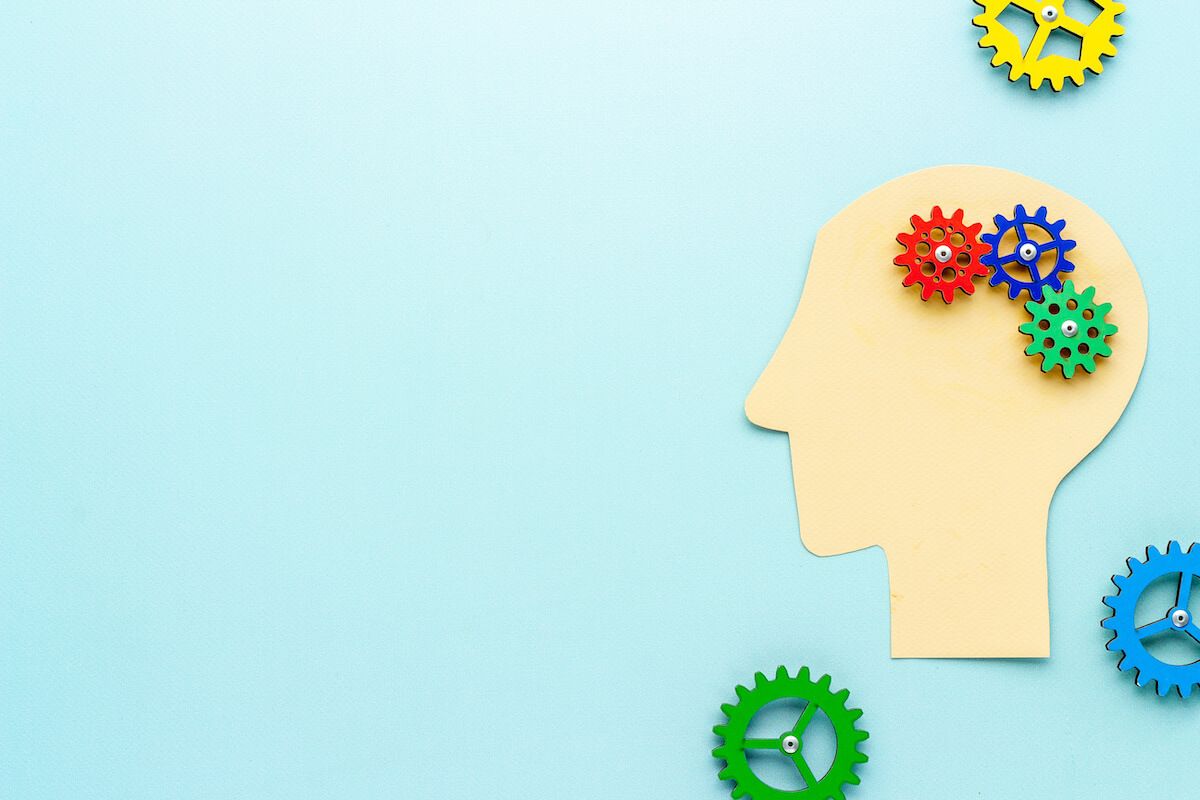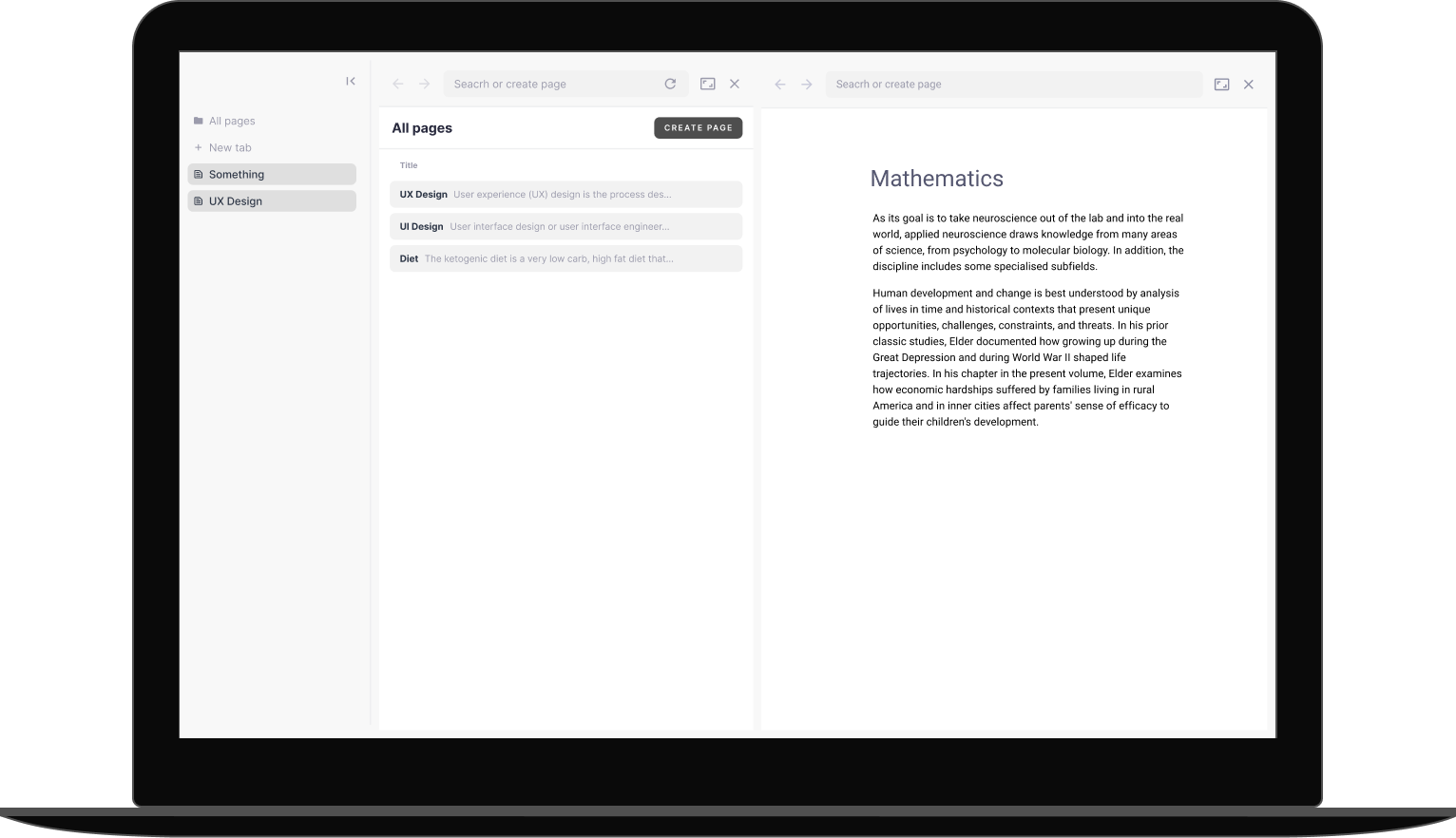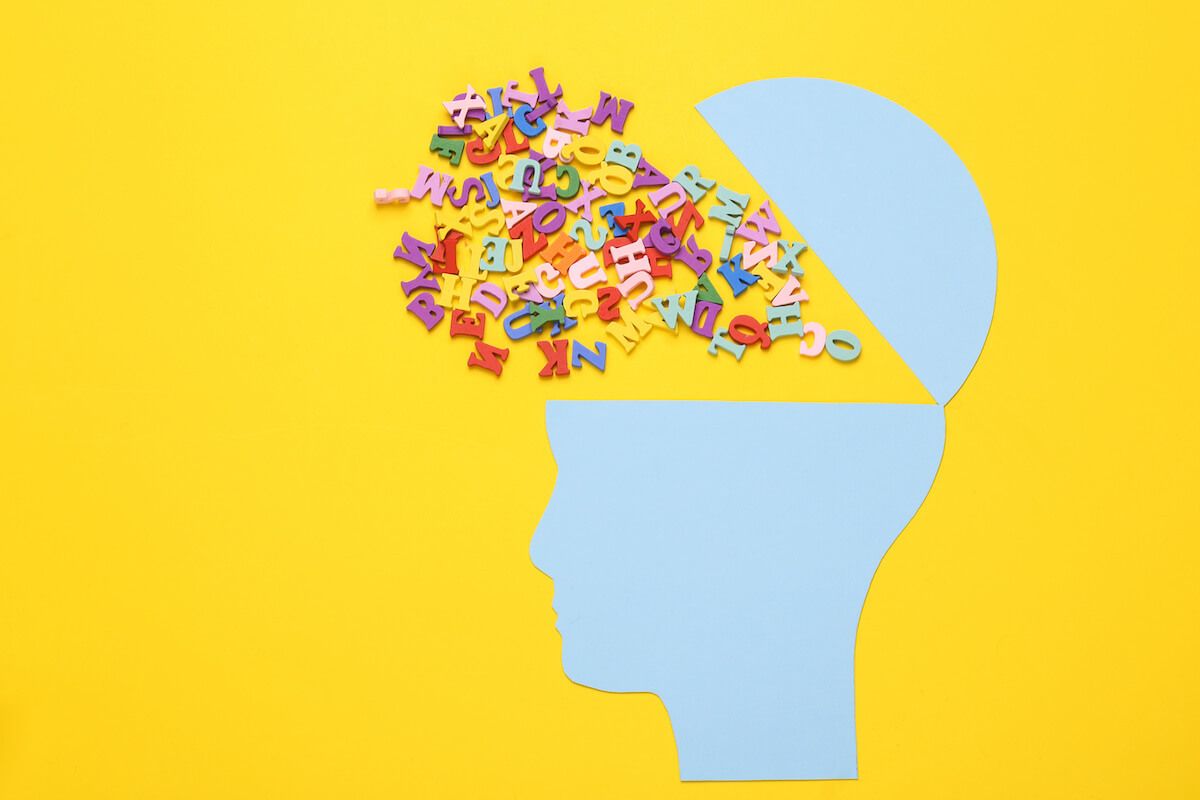Are you struggling to get through a challenging class or project? Maybe you're struggling to learn a new process at work or forgetting the things you want to learn in the midst of so much information.
If so, you might benefit from refreshing your learning strategies using a cognitive approach.
The cognitive approach to learning is a way of understanding and remembering information based on how the human brain processes information. This paradigm emphasizes the role of mental processes in learning, such as attention, memory, and problem-solving. By understanding how the mind works, we can design better ways to learn.
If you need a learning boost, taking a cognitive approach can help. Let’s examine cognitive processes, the components of cognitive learning theory, and a few cognitive learning strategies that can enhance your self-learning.

Cognition refers to mental activities like thinking, remembering, memory, learning, comprehension, perception, motivation, and language acquisition. The cognitive approach to psychology focuses on these internal mental processes and how they interact to produce intelligent behavior. The cognitive approach to learning then takes those insights and applies them to education.
Jean Piaget developed cognitive psychology theory in the 1930s based on his research with infants and young children. He proposed that people develop basic mental abilities throughout their lives, each stage characterized by a different cognitive ability.
Cognitive psychology emerged in the late 1950s and 1960s as a reaction to behaviorists focusing only on observable behaviors. Psychologist Ulric Neisser published the textbook "Cognitive Psychology" in 1967, emphasizing an information-processing approach. By the late 1970s, cognitive psychology had cemented itself as the dominant psychology perspective.
In contrast to other approaches in psychology, such as the behavioral approach, cognitive psychologists believe it's essential to understand the internal mental processes that guide behavior. This includes acquiring and using information, problem-solving, making decisions, and models of memory. Cognitive science also looks at how mental processes affect our emotions and behavior.
Cognitive psychology has contributed to many important insights, such as our understanding of information processing models and cognitive neuroscience. Psychologists often use experiments and case studies to study mental processes in individuals or groups. Understanding these processes can better explain why people act and learn as they do.
The cognitive approach offers a unique perspective on understanding human behavior by examining internal mental processes. For the cognitive theory to work, a few key assumptions must be met:
These assumptions form the basis for cognitive theories and models, which try to explain how the mental processes of human cognition work.

The human mind constantly processes information, whether or not we're aware of it. Cognitive processes are the mental operations we use to acquire, store, and manipulate information. Some cognitive processes are basic, like perception and attention, while others are more complex, like memory and decision-making.
Cognitive psychologists have identified many different mental processes:
Each of these cognitive processes is essential for our survival and daily functioning. For example, we use perception to help us avoid danger, long-term memory to remember important information, and problem-solving to figure out the best way to achieve our goals.

Gather information, take notes, review, reflect, surface insights. All from one perfect, distraction-free interface.
Learn more
One of the most critical parts of effective learning is learning how to learn. Cognitive learning theory is a branch of cognitive psychology that studies how people learn. It focuses on how the human brain acquires, stores, and uses information.
One of the key insights of cognitive learning theory is that we are active learners who construct our own knowledge. We don't just passively receive information from the world around us — we actively engage with it and make sense of it using our cognitive processes. This is known as cognitive construction.
The term "metacognition" is a crucial concept in cognitive learning theory. Metacognition describes your awareness of your brain's thoughts and thought processes. Understanding how thought processes work during learning allows us to direct our thoughts. By manipulating the internal and external factors that affect our thinking, we can improve our understanding of ourselves and others.
In addition to Piaget, several researchers have contributed to cognitive research and the development of cognitive learning theory. Psychologist Lev Vygotsky's sociocultural theory, which focuses on the role of culture and society in cognitive development, was influential in cognitive learning. So was Jerome Bruner's cognitive developmental theory, which emphasizes modes of representation like image, language, and action.
Cognitive learning theory has significantly impacted education. Cognitive science has led to the development of new teaching methods based on cognitive models, such as cognitive apprenticeship and problem-based learning.
The cognitive learning theory is widely applied in the field of education today. The cognitive approach focuses on enabling students to fully engage in the learning process, so they can learn, think, and remember faster and easier.
There are three fundamental aspects of the cognitive theory of learning:
These factors work together to create cognitive learning opportunities to engage and interact with the material, making it easier to remember and understand.

We all have our favorite study habits, but switching them up occasionally is key. Information processing can be enhanced by a variety of cognitive models and learning strategies. As a result, you'll better understand what you’re learning and achieve better learning outcomes. The next time you sit down to study, try these five science-backed strategies.
Practice retrieval, or recalling information from memory, is a practical cognitive approach. This strategy helps you learn and remember information by regularly retrieving it from your short-term and long-term memories. These low-stakes tests benefit learning by allowing you to process and store information more deeply. In cognitive research conducted in real schools and classrooms, retrieval practice was found to have medium or large benefits in most cases.
Interleaving, or mixing up the topics you're studying, is also an effective strategy of cognitive theory. When you interleave, you don't focus on just one subject at a time — instead, you switch between topics each session. Alternating in this way forces your brain to constantly retrieve information from working memory, which helps embed the material more deeply in your long-term memory. In a national conference of pediatric educators that taught five cognitive learning strategies, this method was one of the top two most effective and adopted by educators.
Spacing out your practice, or spreading out your learning over time, is another cognitive approach to learning that can be very effective. When you space out your studying, you take time to learn the material and then return to it later for review. This spaced recall helps embed the material in your memory so you can better recall it when needed.
Elaboration, or adding new details to the material you're trying to learn, is also an effective cognitive learning strategy. Elaborating on a topic strengthens cognitive processes by integrating newly acquired information into your mental models. This way, you create long-term memories by expressing new knowledge in your own words.
Generation is another way to actively make sense of the to-be-learned information and integrate it with your prior knowledge. Using this cognitive approach, you generate examples of the learning material or create potential outcomes related to it. Research has shown that constructing new knowledge strengthens cognitive processing and improves learning outcomes more than passive learning activities.

Highlight, annotate or take notes from anywhere, and it's easily linked to a selected topic in your Knowledge Base.
Learn moreThe cognitive approach to learning is an effective way to learn and remember new information. Thinking models and learning strategies help you engage with the material, making it easier to understand and allowing you to transfer and apply the knowledge to new situations. Each cognitive learning strategy targets different mental processes and thus results in additional benefits for the learner. Try a variety of strategies, and you can maximize your chances of success in learning new things.
I hope you have enjoyed reading this article. Feel free to share, recommend and connect 🙏
Connect with me on Twitter 👉 https://twitter.com/iamborisv
And follow Able's journey on Twitter: https://twitter.com/meet_able
And subscribe to our newsletter to read more valuable articles before it gets published on our blog.
Now we're building a Discord community of like-minded people, and we would be honoured and delighted to see you there.